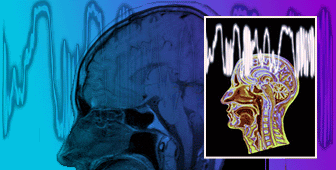Music on the brain

Research at the University Hospital in Zurich is shedding light on the effects of music on the brain.
Working with patients suffering from epilepsy at the University Hospital in Zurich, Heinz-Gregor Wieser, professor of neurology, has been looking at how the brain responds to and processes audio information.
“We found out that the organisation of music in the brain is in the temporal lobe,” he said. “Several structures here and in other brain areas work together for aspects like listening and performance.”
“The second thing we learnt is that music is related to the limbic system where we traditionally localise emotions and we understand now how music interacts with the brain.”
The limbic system is the oldest part of the forebrain, concerned with instinctive reactions such as fear and anger, and the emotional and physical changes which accompany them.
Since music has no obvious survival value and yet the ability to experience and react to music seems so embedded in our biological make-up, scientists want to know how the brain regions affected by music could be involved in other emotions.
Much of the work in Zurich has been conducted with patients who suffer from musicogenic epilepsy, a form of epilepsy in which seizures are triggered by the sound of music.
Using an electroencephalogram, which records electrical activity from different parts of the brain, it is possible to observe how patients respond to acoustic stimuli.
One intriguing aspect of music is that whether your tastes run from punk to opera, nearly everyone is affected by dissonance, violations of a culture’s musical rules.
Professor Wieser could clearly observe what listeners consider harmonious and what they consider cacophonous – the so-called consonance-dissonance dichotomy in Western classical tradition.
The findings suggest that cultural aspects play an important role in brain organisation. Wieser said that controversial research from Japan indicated that the brain organisation for music and language aspects was not the same as in the West.
“It would be extremely interesting to study brains which developed in other musical cultural contexts because we have to assume that these rules might not be fixed all over the world but partly determined by ethical factors and tradition.”
The work in Zurich reinforces the suggestion that musical education enhances the brain’s ability by stimulating the connections between brain cells.
“It’s well known that musical therapy can be very helpful for transportation of non-musical information into a diseased hemisphere if you overlay it with musical tones.
“If you know, for example, that the right hemisphere is the main entrance for some kinds of music you can then take this music and overlay it with the intended information and it will reach the diseased hemisphere better.”
The next goal for Wieser’s team is to try to obtain a better understanding of the memory aspects of music.
“We have a very deep and clinically motivated interest,” he said. “Since we are doing epilepsy surgery, we have to remove the hippocampus structure and we know that it is involved in aspects of memory, mainly consolidation.”
“We believe the next step is to look for the musical memory. Memory research has normally been done with visual stimuli. It’s true our brain is heavily tuned to visual information but since we believe that music is so important we should probably invest our research more into the auditory aspects of memory.”
by Vincent Landon

In compliance with the JTI standards
More: SWI swissinfo.ch certified by the Journalism Trust Initiative








You can find an overview of ongoing debates with our journalists here . Please join us!
If you want to start a conversation about a topic raised in this article or want to report factual errors, email us at english@swissinfo.ch.